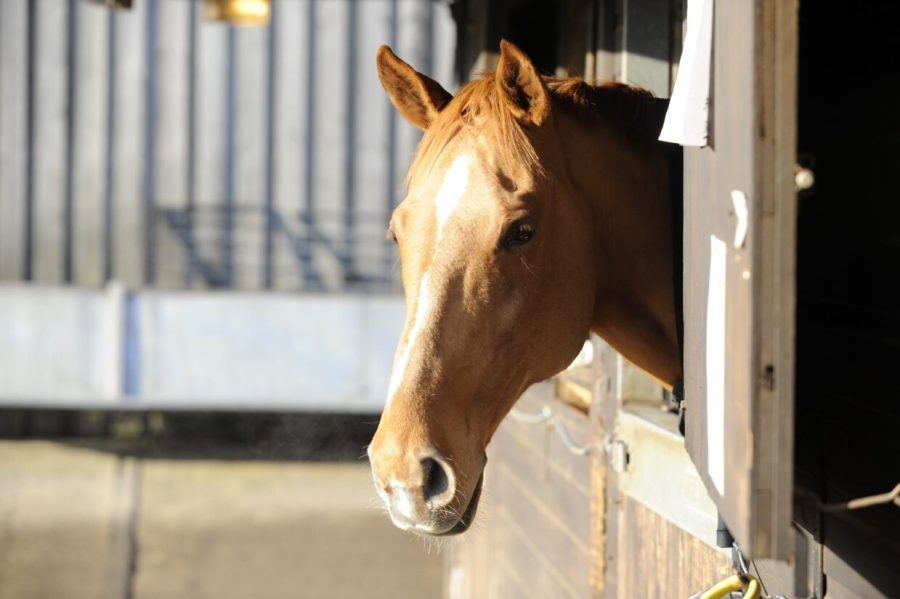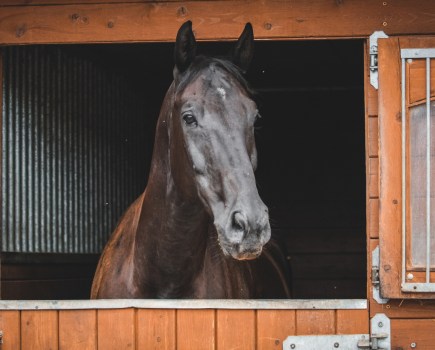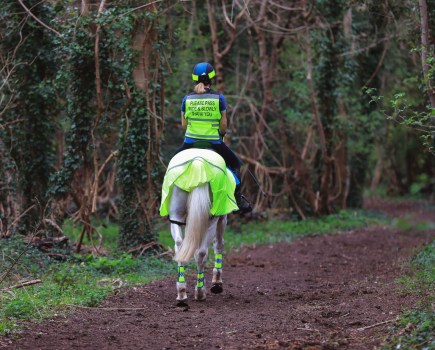A 2021 study investigating owner perceptions into what factors are considered when deciding to end the life of a horse or pony has found that the equine’s mental health is not considered to the same degree as physical health.
The paper was written by Catherine Bell and Suzanne Rogers, behaviourists from the Equine Behaviour and Training Association (EBTA).
In the study, owners were asked about hypothetical yet common scenarios that could impact the overall quality of life for the horse. These included whether the horse was visibly lame at walk, lived in an established herd and had access to forage 24/7.
Participants indicated to what extent each scenario would have bearing on their overall decision on whether to euthanise a horse, or if it had no bearing at all, using a Likert scale of ‘strongly reduces’ to ‘strongly increases’.
The final question gave participants the opportunity to write whether they had had a horse euthanised, and to give the reasons for such a decision.
The survey received 160 responses in total and three key points were concluded:
- A limited set of welfare factors are considered when assessing quality of life
- Physical issues (including mild lameness) are more likely to factor into euthanasia decisions than issues relating to mental health
- Owners are less likely to account for subtle welfare issues, potentially leading to the delay of euthanasia and prolonged suffering
‘He was miserable’
Co-researcher Catherine said that she personally recognises the difficulty faced by owners when considering euthanasia.
“I owned my 28-year-old quarter horse for 21 years, and his final years were an emotional rollercoaster,” she said.
Catherine added that her horse struggled to maintain weight and suffered with occasional lameness.
“I found myself almost wishing that he could have a clear-cut condition that would make it obvious when his time had come,” she added.
The situation was made more complicated by the loss of the horse’s close companions and him being bullied out of his herd.
“I found myself wondering about his mental health,” recalled Catherine. “He was in a field by himself where he was miserable, and I didn’t know if I could risk another yard move in case it made things worse.”
Catherine was able to find a quiet Shetland for a companion, and moved her horse to live in a field near to her home. However, she acknowledged that this isn’t an option for everyone.
‘A life worth living?’
Catherine stressed that she isn’t suggesting horses are euthanised based on their mental health alone, just that it should be considered as one of many factors when considering a horse’s quality of life.
“I wouldn’t for a minute be recommending that people should be euthanising on the basis of mental health alone — so often we can implement changes to improve things,” she confirmed.
“If you imagine two horses with equivalent low-level, intermittent lameness: if one has an enriched life with their emotional and ethological needs met, then there is a good argument for prolonging the life of that horse. Whereas if the other horse is stabled for 23 hours a day and has very little equine contact, then we should be considering whether that is a life worth living.”
Catherine believes that mental health should be considered more widely in the equine industry.
“Previous research has shown that people are often not very good at recognising the subtle signs of fear and stress. There’s an attitude that horses should be ‘shown who’s boss’ and ‘not allowed to get away with it’. There’s quite a stigma attached to being perceived as too soft.”
Making changes
For change to happen, it is important for the whole industry to come together.
“We need to work towards an industry that is much more accommodating of equine behavioural and emotional needs,” said Catherine, who recommends that owners seek advice if they are concerned about their horses’ behaviour.
“It’s not the sole responsibility of a vet, farrier or livery yard owner to train a horse, but they could recommend further support from a behaviourist. These conversations need to be handled very delicately and sensitively, as to say anything unprompted to an owner risks defensiveness and reluctance to engage in the subject.
“When horses are struggling with their emotional and behavioural needs, then I would recommend addressing those needs to resolve whatever the horse needs resolving,” continued Catherine. “But if you are facing an end-of-life decision for your horse, then your horse’s mental health should be incorporated into that decision.”
Read the full study here.








